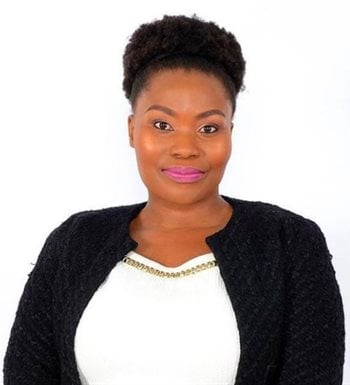
Gugu Mjadu, executive manager of marketing at Business Partners Limited
This is the opinion of Gugu Mjadu, executive manager for marketing at Business Partners Limited, who explains that issues such as economic inclusion provides segues into broader issues such as gender equality, the socioeconomic empowerment of women and even issues of gender-based violence. “Tackling these issues will involve the dismantling of several structural obstacles and gender biases, which continue to perpetuate outdated systems of thinking about the role of women, and the female entrepreneurs in particular, in South African society.”
Lack of access to finance – and a way forward
Touching on the hurdles that stand in the way of women entrepreneurs who wish to enter the market or grow their businesses, Mjadu explains that access to funding and business finance continues to thwart the success of women.
A number of possible reasons for this lack of access as cited by experts include the perception that lending to women is riskier, a lack of understanding around gender-specific challenges faced by entrepreneurs and stifling legal and regulatory frameworks. On the continent, there is an estimated US $42bn financing gap for African women across business value chains, according to the African Development Bank Group.
Closer to home, an extensive report published by South African’s Department of Trade, Industry and Competition, found that out of 170 women who were surveyed across four provinces, only seven were familiar with the available financing options for SMEs.
For Mjadu, this evidence points to the fact that inequality on terms of business finance is a “multi-faceted challenge.” She elaborates: “you can’t take advantage of an opportunity you do not know exists. Any viable solution therefore needs to include an extensive national awareness campaign. However, a long-term solution lies not only in equipping financial institutions and independent financiers with gender-informed policies, it’s also about granting women access to financial literacy programmes. “Putting together a business plan, understanding the long-term impact of financing and learning how to manage cashflow – these are the fundamental aspects of business finance that aspiring women entrepreneurs in particular, need access to.”
The issue of gender bias and its impact on aspiring entrepreneurs
In addition to structural disadvantages, women entrepreneurs also face deeply entrenched gender biases. A study conducted by the Vaal University of Technology identified gender discrimination based on biases to be one of the most prevalent challenges facing South African women.
The traditional image of the ‘male breadwinner’ has exacerbated this reality, when in fact, a study by Stats SA revealed that as of 2021, over 40% of South African households were headed by females. Women, therefore, who bear a large proportion of caretaking and child-rearing duties, face additional pressure upon trying to enter the SME sector due financial strain from difficulty in accessing business finance or even market opportunities as women.
“Gender bias is often difficult to quantify due to its insidious nature, but it poses a significant threat to women who want to become business pioneers. It is precisely because women are discriminated against in a male-dominated business world that intentional initiatives need to be introduced in order to support women to start and sustain their own businesses,” explains Mjadu.
We can work towards a solution by building networks for female entrepreneurs – a number of these types of networks have begun to proliferate on social media. Aspiring female entrepreneurs are encouraged to join and interact with these types of platforms, not only to add to the discussion but to lean on business advice that stems from the unique female perspective.”
Training and education should be top of mind
The lack of training and education for women in South Africa also presents a challenge for women wanting to start their own businesses. Many female entrepreneurs who start and build businesses in the microenterprise and informal sector reach a plateau from which they cannot progress due to their limited access to education and training.
This is particularly true in the Information and Communications Technology (ICT) and Stem (Science, Technology, Education and Mathematics) industries which are notoriously male dominated. As a report by PwC found, women occupy less than 20% of the jobs in the ICT and related industries. Women who do not have access to formalised training in these areas will not easily be able to leverage the opportunities that lie within the digital technology space.
Mjadu concludes: “Access to training and education opportunities remains one of the most prominent topics in South African discourse around the importance of developing female entrepreneurs. The solution, as we are beginning to see, lies in community-based ICT and Stem programmes, supported by the government and the private sector.
“The push to get more women into these programmes needs to be initiated at school level by helping South African teachers and role-players across the board to identify potential talent and opportunities to develop gifted young girls.”